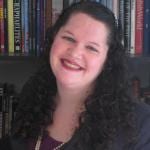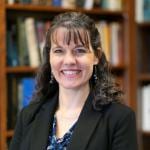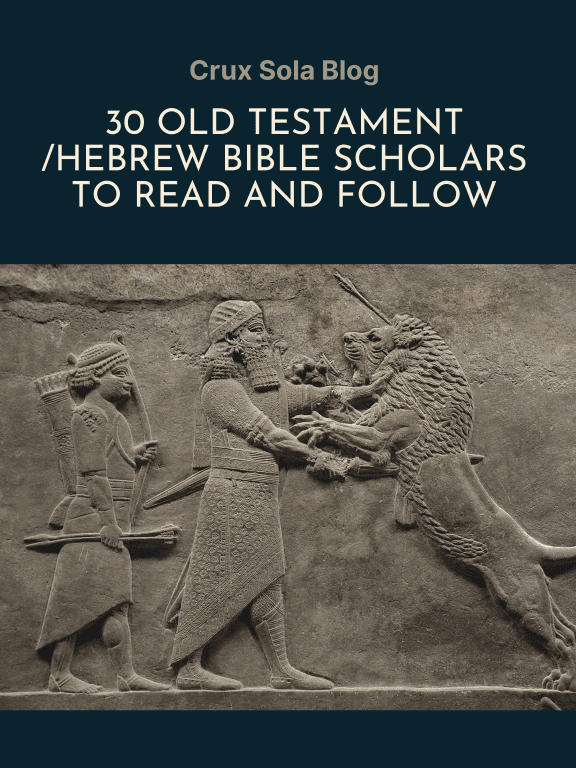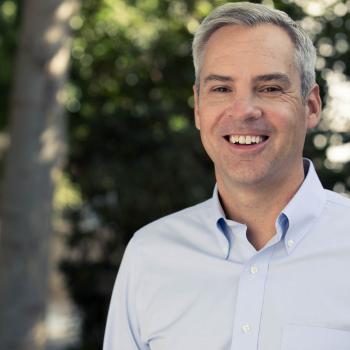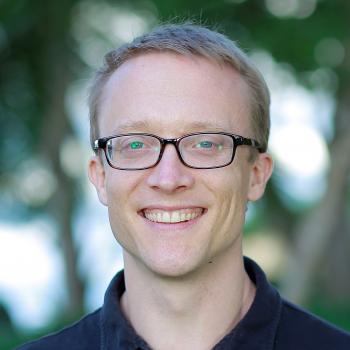30 Old Testament/Hebrew Bible Scholars to Read and Follow
Stephen B. Chapman
Associate Professor of Old Testament
Duke University

Why do you love teaching and researching the OT?
I started out by studying Christian theology and the NT. But the more I did, the more I saw how it all went back to the OT. I wanted to get to the root of things. Then as I probed more deeply into the OT texts and traditions, I kept seeing exegetical resources that could be very helpful for the church, if only they were better known. I served as a pastor while I was doing my doctoral work, and I constantly saw crossover possibilities between my academic research and my church activities. I came to think of myself as sort of an evangelist for the OT, with a conviction that it offers the post-Constantinian church new ways to think about being the people of God in our contemporary situation. I am still persuaded that the OT provides the basic grammar for Christian theological discourse, that it in fact represents the church’s Trinitarian conscience. It is a daily joy for me to explore these and other ideas with divinity and doctoral students in the classroom. In my research, I try to facilitate dialogue between biblical studies and theology by introducing theological questions into exegetical discussions and bringing OT exegesis into theological conversations.
What is one big idea you try to convey in your scholarship and teaching?
Scripture is a means of revelation and not only a record of it. Although it sounds strange to say so after centuries of critical scholarship on the Bible, we have not yet fully come to terms with what scripture actually is. Nor have we developed an interpretive approach that corresponds closely enough to scripture’s true nature. In modernity, scripture is typically read as a series of historical transcripts, as fragmentary evidence for divine acts in history. Biblical scholars have become historians. Reconstructed historical schemes substitute for scripture’s own witness. I have instead sought to show how scripture-making as a religious phenomenon is a lively and life-giving search for the transcendent, a type of corporate testimony. By virtue of its written form and the circumstances of its making, it has a revelatory dimension that exceeds history. In my historical scholarship, I have tried to demonstrate that scripture already served as a source of revelation in ancient Israel. This, for me, has been the main takeaway of my investigations into the historical process of OT canon formation. In my exegetical scholarship, I attempt to discern how the OT continues to provide a revelatory witness today. The history of biblical reception is of tremendous aid on this last point, because it illustrates how the OT has never been frozen in time. Like a mighty stream, it flows.
Who is your academic hero and why?
W. M. L. de Wette (1780–1849). Sometimes remembered only as someone who called traditional Christian doctrines into question, he pushed past the historicism of his time in order to explore the aesthetic and existential dimensions of the Bible. He was alert to the need to place biblical scholarship on an appropriate philosophical footing and sought a middle way between rationalism and supernaturalism. Above all, I admire him because he wrote a letter of sympathy to the mother of one of his students, Karl Sand, who had recently stabbed and killed a well-known conservative playwright, a scornful opponent of free democratic institutions. For offering consolation in that charged political environment, de Wette was fired from his teaching job in Berlin and banished from Prussia. He was brave, concerned for his students, opposed to authoritarianism, and willing to act on his beliefs.
What are some academic books that were formative for you as a student?
Hans W. Frei, The Eclipse of Biblical Narrative (Yale University Press, 1974)
Frei was my undergraduate mentor. A kind man with uncanny theological insight, he gave me much of my intellectual furniture. Once after graduation, when I told him that I was surprised to run into him in a train station, he remarked: “Or maybe for us, as Christians, there really shouldn’t be any surprises.”
Stanley Hauerwas and William H. Willimon, Resident Aliens (Abingdon, 1989); now available in a 25th anniversary edition (Abingdon, 2014)
As a young pastor, my worst fears about the challenges facing the church were confirmed by reading Hauerwas and Willimon, but at the same time they helped me realize that I was not alone. They gave me new grounds for hope. It was a great moment in my life when I had the opportunity to become their colleague and friend at Duke.
Jaroslav Pelikan, The Vindication of Tradition (Yale University Press, 1984)
This slim but profound volume was the required summer reading before I started my divinity degree. It contains that famous line, which I have never since forgotten: “Tradition is the living faith of the dead, traditionalism is the dead faith of the living.”
Read Chapman’s Work
1 Samuel as Christian Scripture: A Theological Commentary (Eerdmans, 2016); named Reference Book of the Year for 2017 by the Academy of Parish Clergy
The Law and the Prophets: A Study in Old Testament Canon Formation, Baker Academic (September, 2020), with a new postscript and updated bibliography
Stephen B. Chapman and Marvin A. Sweeney, eds., The Cambridge Companion to the Hebrew Bible/Old Testament (Cambridge University Press, 2016)
Watch Some Videos with Chapman
Eerdmans interview about 1 Samuel commentary
Two interviews from Great Bible Teachers, one on violence in the Bible and another on critical OT scholarship:
Being Honest about Violence in the Bible
Studying the Old Testament with Commentaries
If I ran into you at SBL, and you didn’t want to talk about OT/HB studies, what would we chat about?
I love music of all kinds, especially classical. I play the piano and there is always music to be heard somewhere in my house. I am also a movie buff and an avid gardener. I wish I had more time to hike and fish. If we were chatting together, I would eventually tell you about some amazing creature that I have discovered in my yard. There is an entire world to explore on my damp, shady Piedmont hillside.
What are you writing right now that you are excited about?
I am finishing a book on the theology of Joshua for the Old Testament Theology series published by Cambridge University Press. Violence in the Bible has been a recent focus of mine, and the Joshua book is my latest effort to address it. Then I plan to write a book on Numbers 6 and the priestly blessing for Baker Academic. I have become increasingly interested in the notion of blessing, both because it often seems to be misunderstood and because it has such potential, when better understood, to enrich ecclesial life and the practice of ministry.







